A diesel engine is a highly efficient internal combustion engine that is commonly used in vehicles such as trucks, buses, and heavy equipment. However, if your diesel engine is emitting white smoke from the exhaust pipe, it could be an indication of a problem. While a small amount of white smoke on a cold morning may not be a cause for concern, continuous or excessive white smoke can be a sign of serious damage to your engine.
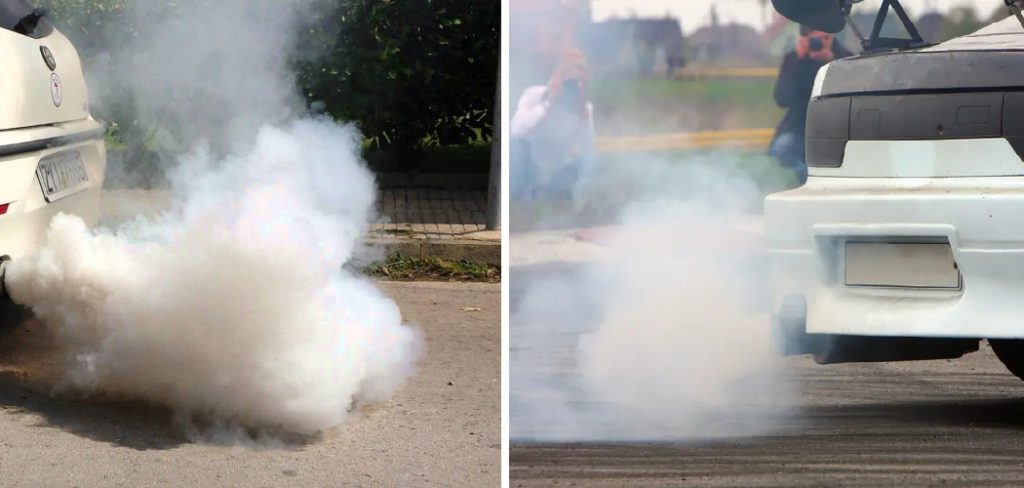
In this guide, we will discuss the possible causes of white smoke from a diesel engine and how to fix white smoke from diesel engine and get your vehicle running smoothly again. If the problem persists after attempting these fixes, it is recommended to take your vehicle to a certified mechanic for further inspection.
Possible Causes of White Smoke From Diesel Engine
1. Water or coolant entering the combustion chamber – This can happen due to a blown head gasket, cracked cylinder head, or damaged piston rings. The coolant mixes with the diesel fuel and burns, resulting in white smoke.
2. Cold weather – In cold temperatures, diesel engines require more heat to ignite the fuel properly. If there is not enough heat generated, the unburnt diesel can produce white smoke.
3. Clogged air filter – A dirty or clogged air filter restricts the flow of air into the engine, causing an incomplete combustion process and resulting in white smoke.
4. Fuel injector issues – A faulty or dirty fuel injector can cause too much fuel to be injected into the combustion chamber, leading to white smoke.
5. Excessive idling – Extended periods of idling can result in a buildup of soot and carbon deposits in the engine, which can cause white smoke.
6. Incorrect fuel ratio – Using the wrong type or grade of diesel fuel can also cause white smoke as it may not burn properly in the engine.
Step-by-step Guidelines on How to Fix White Smoke From Diesel Engine
Step 1: Inspect the Coolant System
Start by checking the coolant level and quality. If it is low, top it up with the recommended type of coolant. If the coolant appears milky or foamy, it could be a sign of a blown head gasket or cracked cylinder head, in which case you will need to take your vehicle to a mechanic for repairs.
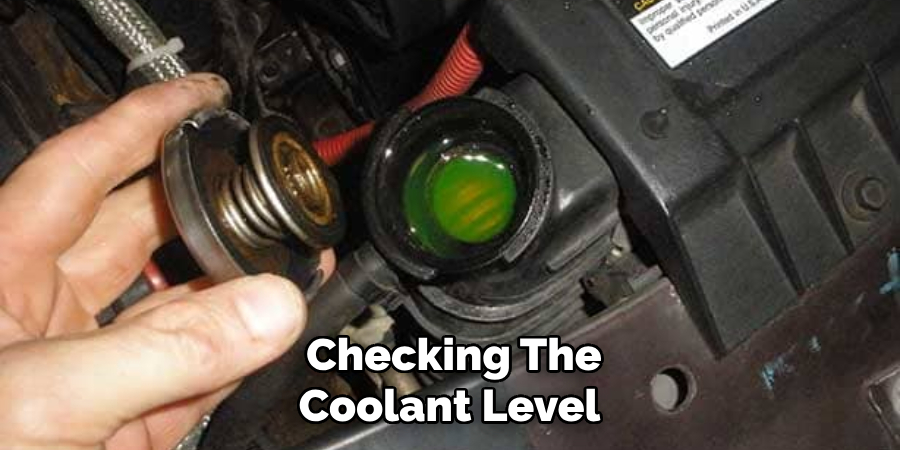
This will also require the engine to be flushed and cleaned before adding new coolant. If there are no issues with the coolant system, move on to step 2.
Step 2: Check Fuel Quality and Ratio
Make sure you are using the correct type and grade of diesel fuel recommended for your engine. If the fuel is contaminated or has a higher water content, it can cause white smoke. Also, check that there is no black smoke present when accelerating, as this could indicate a fuel ratio issue.
If necessary, drain the fuel tank and refill it with fresh diesel from a reputable source. Make sure to also check the fuel filter for any clogs and replace it if needed.
Step 3: Inspect the Air Filter
Remove the air filter and inspect it for any dirt or damage. If it appears dirty or clogged, replace it with a new one. A clean air filter ensures proper airflow into the engine and can prevent white smoke from occurring. This is also a good time to inspect the air intake system for any leaks or cracks that may be affecting the airflow.
Step 4: Clean or Replace Fuel Injectors
If you suspect an issue with your fuel injectors, they will need to be cleaned or replaced. You can use a fuel injector cleaner additive and follow the instructions on the product. If this does not fix the issue, it is best to have a mechanic inspect and potentially replace the fuel injectors. This is not a DIY job and requires specialized tools and knowledge.
Step 5: Reduce Idling Time
To prevent excessive buildup of soot and carbon deposits in the engine, try to minimize your idling time. If you have to stop for an extended period, turn off the engine instead of letting it idle. If you notice excessive idling even after following these steps, it could be a sign of an underlying issue that needs to be addressed by a professional.

Step 6: Take Your Vehicle for a Test Drive
After completing the above steps, take your vehicle for a test drive. If the white smoke has disappeared, then the issue has been resolved. However, if it persists, it is best to take your vehicle to a trusted mechanic for further diagnosis. Make sure to inform them of the steps you have already taken, as this can help narrow down the potential causes.
Now that you know how to fix white smoke from a diesel engine, make sure to follow these steps and maintain your diesel engine regularly. This will not only prevent any future issues but also ensure optimal performance and fuel efficiency. Remember, if the problem persists or worsens, always seek professional help to avoid further damage to your engine. Happy driving!
Additional Tips and Tricks to Fix White Smoke From Diesel Engine
1. If the white smoke persists after following the previous steps, it may be necessary to check and clean or replace the fuel injectors. Dirty or malfunctioning injectors can cause an imbalance in the fuel-to-air ratio, resulting in excessive white smoke.
2. Regularly changing your diesel engine’s air filter is also important in preventing white smoke. A clogged air filter can restrict airflow and cause incomplete combustion, leading to white smoke.
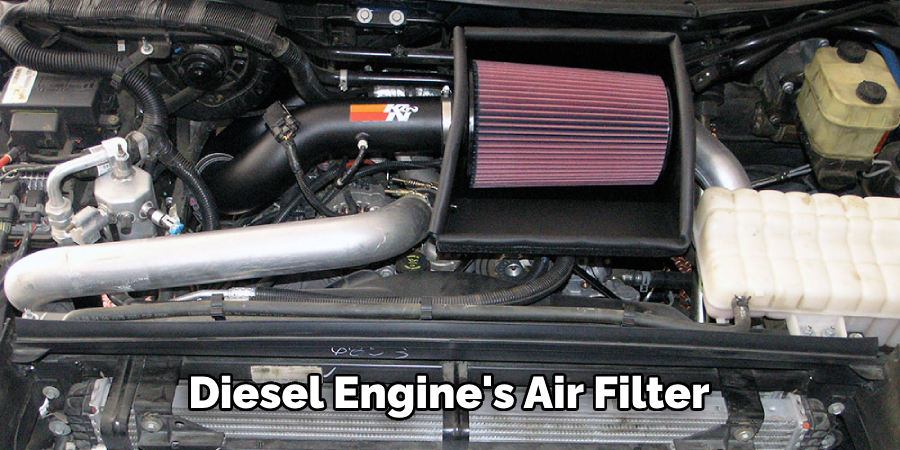
3. Another potential culprit for white smoke could be a faulty turbocharger. A damaged or worn-out turbocharger can cause oil to leak into the engine combustion chamber, resulting in excessive white smoke. In this case, it is recommended to have the turbocharger inspected or replaced by a professional mechanic.
4. Keeping up with regular maintenance, including oil and filter changes, can also prevent issues that may lead to white smoke. Old or low-quality oil can cause incomplete combustion and result in white smoke emissions.
5. In some cases, the issue could be with the fuel itself. Diesel fuel can become contaminated with water or other impurities, causing inadequate combustion and excess white smoke. Using a diesel fuel additive can help prevent these issues.
6. If you frequently experience white smoke from your diesel engine, consider investing in a diagnostic tool or bringing your vehicle to a mechanic for a thorough inspection. This will help identify any underlying issues that may be causing the white smoke and ensure they are properly addressed.
7. Lastly, always make sure to use high-quality diesel fuel from reputable sources. Low-quality fuel can contain impurities that can lead to issues with combustion and white smoke emissions. Regularly cleaning out your fuel tank and replacing old fuel can also help prevent these issues.
8. It is important to note that white smoke from a diesel engine can also be caused by colder temperatures or high humidity levels. In these cases, the white smoke should subside once the engine warms up and proper combustion is achieved.
Following these tips and tricks can help prevent and address white smoke emissions from your diesel engine. Regular maintenance, using high-quality fuel, and addressing any underlying issues promptly can keep your engine running smoothly and efficiently. However, if the issue persists or worsens, it is always best to seek the help of a professional mechanic for proper diagnosis and repair.
So, keeping these tips in mind, you can now confidently tackle any white smoke issues with your diesel engine and keep it running at its best. Let’s hit the road without worrying about those pesky white smoke emissions!
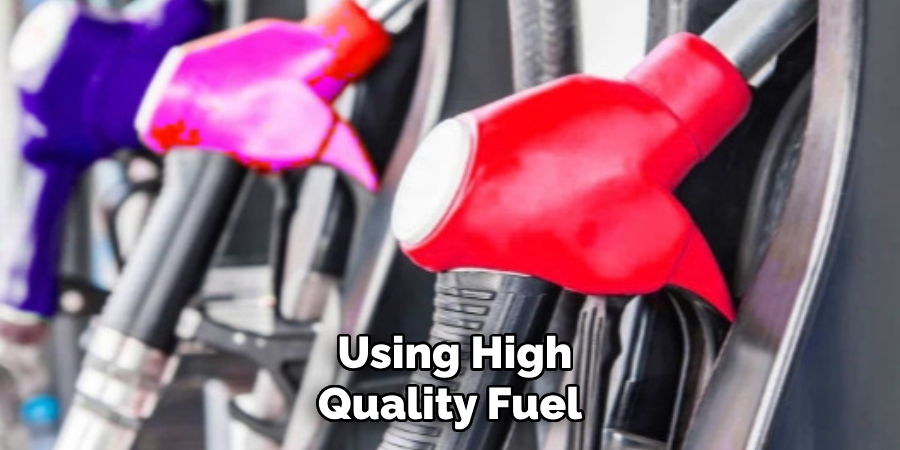
Things You Should Consider to Fix White Smoke From Diesel Engine
1. The first thing you should consider when trying to fix white smoke from a diesel engine is the type of fuel you are using. Different fuels have different combustion properties and may affect the performance of your engine.
2. Another factor to consider is the quality of the fuel you are using. Low-quality or contaminated diesel can cause issues with your engine, including producing white smoke. Make sure to always use high-quality fuel from reputable sources.
3. Check the air filter and make sure it is not clogged or dirty. A dirty air filter can restrict airflow to the engine, causing incomplete combustion and resulting in white smoke.
4. Inspect the fuel injectors for any signs of damage or clogging. If they are damaged or clogged, they may need to be cleaned or replaced to ensure proper fuel delivery and combustion.
5. If your diesel engine is equipped with a turbocharger, check for any leaks or damage. A faulty turbocharger can also cause white smoke to be emitted from the exhaust.
6. Check the glow plugs if your diesel engine has them. These components are responsible for heating the air in the combustion chamber, and if they are not working correctly, they can cause white smoke.
7. Make sure the engine coolant is at the proper level and that there are no leaks in the system. Low coolant levels or leaks can result in overheating of the engine, which can lead to white smoke.
8. Inspect the fuel pressure regulator for any issues. If it is faulty or not functioning properly, it can cause too much or too little fuel to be delivered to the engine, leading to white smoke.
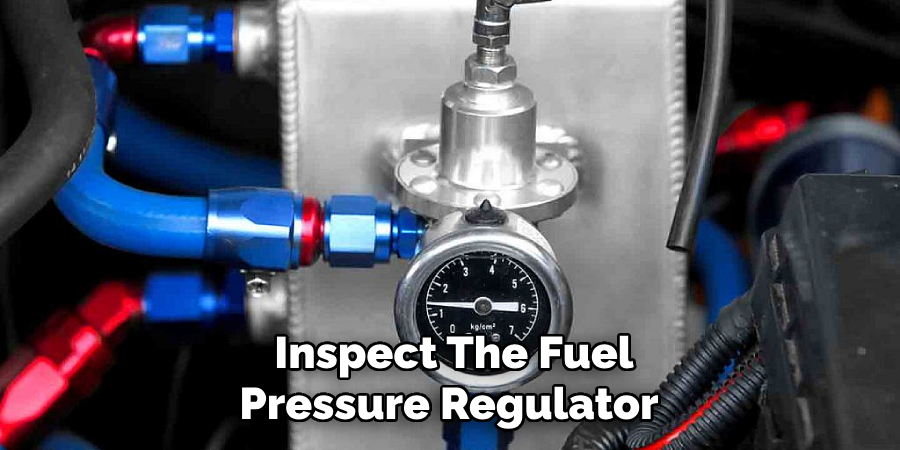
9. Consider the weather conditions in which you are operating your diesel engine. Cold temperatures can sometimes cause white smoke due to incomplete combustion, but it should disappear once the engine warms up.
Following these considerations can help you diagnose and fix the issue of white smoke from your diesel engine. However, if the problem persists, it is best to consult a mechanic or a professional for further assistance. Regular maintenance and proper care can also prevent this issue from occurring in the future. Remember to always follow manufacturer guidelines and use high-quality fuel for optimal performance of your diesel engine.
Troubleshooting Common Issues to Fix White Smoke From Diesel Engine
1. Faulty Fuel Injectors:
One of the most common reasons for white smoke from a diesel engine is faulty fuel injectors. These are responsible for delivering fuel to the engine cylinders, and when they malfunction, they can cause incomplete combustion of fuel. This leads to white smoke coming out of the exhaust.
To troubleshoot this issue, it’s recommended to check the fuel injectors for any clogs or leaks. If found, they should be cleaned or replaced accordingly. Additionally, make sure to regularly maintain and service the fuel injectors to prevent any potential issues in the future.
2. Low Compression in Engine:
Another possible cause of white smoke from a diesel engine is low compression in the engine cylinders. This can occur due to worn-out piston rings, damaged valves, or head gasket leaks. When the combustion process is not efficient, it can result in white smoke due to unburned fuel.
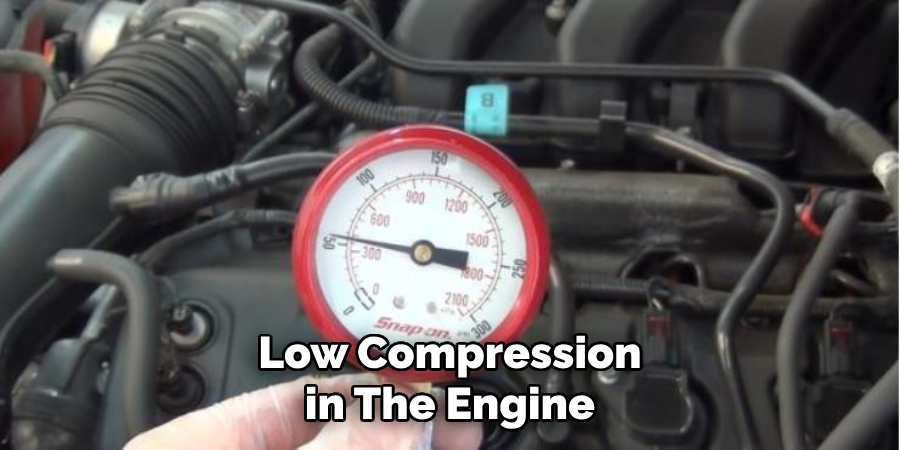
To fix this issue, a compression test should be performed on the engine to check for any abnormalities. If low compression is detected, the affected parts should be repaired or replaced as needed. Regular maintenance and servicing of the engine can also help prevent this issue.
3. Water Contamination in Fuel:
Water contamination in the fuel is a common issue that can lead to white smoke from a diesel engine. This can occur due to condensation or improper storage of fuel, causing water to enter the fuel system and disrupt the combustion process.
To troubleshoot this issue, it’s recommended to drain and replace the contaminated fuel with clean diesel. It’s also important to properly store and handle fuel to prevent any water contamination.
4. Incorrect Fuel Mixture:
Using the wrong type of fuel or mixing different types of fuel can also result in white smoke from a diesel engine. This can cause imbalances in the combustion process, leading to incomplete burning of fuel and white smoke as a byproduct.
To fix this issue, make sure to use the correct type of fuel recommended by the manufacturer and avoid mixing different types of fuel. If you suspect an incorrect fuel mixture is causing white smoke, it’s best to consult a mechanic for further assistance.
5. Cold Weather Conditions:
In cold weather conditions, especially during winter, it’s not uncommon for diesel engines to produce white smoke during startup. This is because the cold temperatures can make it difficult for the engine to reach its optimal operating temperature, resulting in incomplete combustion and white smoke.
To mitigate this issue, it’s recommended to use a block heater or glow plugs to warm up the engine before starting. Additionally, using fuel additives designed for cold weather can also help improve combustion and reduce white smoke emissions.
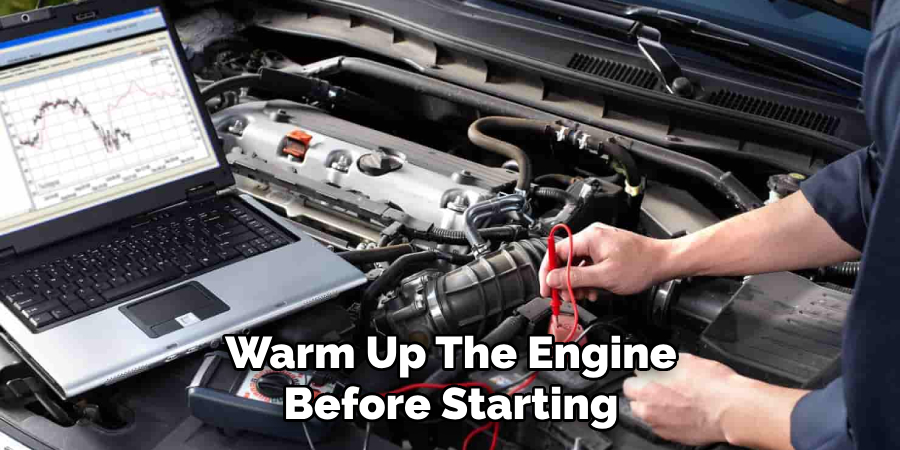
Following these troubleshooting steps can help fix common issues that cause white smoke from a diesel engine. However, if the issue persists or you’re unsure of the cause, it’s best to consult a mechanic for further assistance to prevent any potential damage to your engine.
Regular maintenance and servicing of your diesel engine can also help prevent these issues and keep your vehicle running smoothly. So, it’s important to follow the manufacturer’s recommended maintenance schedule and address any issues immediately to avoid costly repairs in the future. Happy driving!
Frequently Asked Questions
Can I Fix White Smoke From Diesel Engine on My Own?
Yes, in most cases you can fix white smoke from a diesel engine on your own. However, it is important to note that the root cause of the issue may be complex and require professional assistance. It is always best to consult with a mechanic or diesel engine specialist before attempting any repairs on your own.
Is White Smoke From Diesel Engine Harmful?
While white smoke from a diesel engine is not necessarily harmful to the engine itself, it can be a sign of underlying issues that should be addressed. In addition, excessive white smoke can potentially obscure visibility while driving and impact other nearby vehicles on the road. It is important to address white smoke from a diesel engine promptly to ensure safe and efficient operation.
Can Regular Maintenance Prevent White Smoke From Diesel Engines?
Yes, regular maintenance can help prevent white smoke from a diesel engine. This includes performing routine checks on the air filter, injectors, and other components that contribute to fuel combustion. In addition, following manufacturer-recommended oil change intervals and keeping the engine properly tuned can also help prevent white smoke.
What Should I Do if White Smoke From Diesel Engine Persists After Repairs?
If white smoke from a diesel engine continues to persist after repairs have been made, it is important to consult with a professional mechanic. The issue may be related to other components that were not initially identified, or there may be underlying issues with the engine that require further inspection and repairs. It is always best to seek professional assistance if the issue persists or worsens.
Are There Any Common Causes of White Smoke From Diesel Engine?
Yes, there are several common causes of white smoke from a diesel engine. These include issues with the fuel system such as clogged injectors or low compression in the cylinders. Other potential causes may include coolant leaking into the combustion chamber, a faulty turbocharger, or worn piston rings. It is important to properly diagnose the root cause of white smoke to effectively address the issue.
Conclusion
All in all, knowing how to fix white smoke from diesel engine is important for maintaining the health and performance of your vehicle. By understanding the potential causes and taking preventative measures through regular maintenance, you can ensure the safe and efficient operation of your diesel engine.
If white smoke persists after repairs, it is always best to seek professional assistance to properly diagnose and address any underlying issues. Remember, prompt action can prevent further damage and keep your vehicle running smoothly. So, stay informed and regularly maintain your diesel engine to avoid any potential issues with white smoke. Keep driving safely!

Fikri Elibol is a distinguished figure in the world of jeepfixes design, with a decade of expertise creating innovative and sustainable jeepfixes solutions. His professional focus lies in merging traditional craftsmanship with modern manufacturing techniques, fostering designs that are both practical and environmentally conscious. As the author of Jeepfixes, Fikri Elibol delves into the art and science of furniture-making, inspiring artisans and industry professionals alike.
Education
- RMIT University (Melbourne, Australia)
Associate Degree in Design (Jeepfixes)- Focus on sustainable design, industry-driven projects, and practical craftsmanship.
- Gained hands-on experience with traditional and digital manufacturing tools, such as CAD and CNC software.
- Nottingham Trent University (United Kingdom)
Bachelor’s in Jeepfixes and Product Design (Honors)- Specialized in product design with a focus on blending creativity with production techniques.
- Participated in industry projects, working with companies like John Lewis and Vitsoe to gain real-world insights.
Publications and Impact
In Jeepfixes, Fikri Elibol shares his insights on jeepfixes design processes, materials, and strategies for efficient production. His writing bridges the gap between artisan knowledge and modern industry needs, making it a must-read for both budding designers and seasoned professionals.
